| By: Paul S. Cilwa | Viewed: 7/26/2024 Occurred: 6/27/1969 |
Page Views: 4749 | |
| Topics: #History #LGBTRights #GayRights #BisexualRights #TranspersonRights #StonewallInn | |||
| How the LGBT movement got a kick start in a Greenwich Village bar. | |||
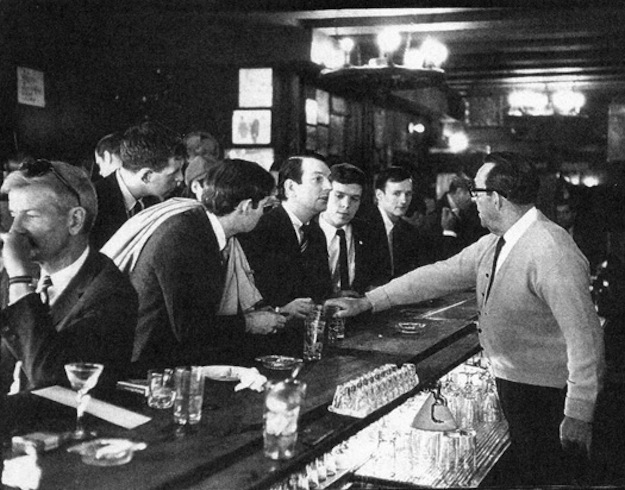
In 1950s and 1960s New York, there was an uneasy balance struck between gay people's need to socialize and the preference of straight society that there be no gay people. A result was the gay ghetto of Greenwich Village, with its multitude of gay bars, and periodic raids by the police of these bars. The feeling was not unlike that of a Russian Jew at the end of the 1800s, trying to live a normal life in a usually peaceful village, never knowing if this would be the night the Cossacks would come through and imprison or kill him and his family.
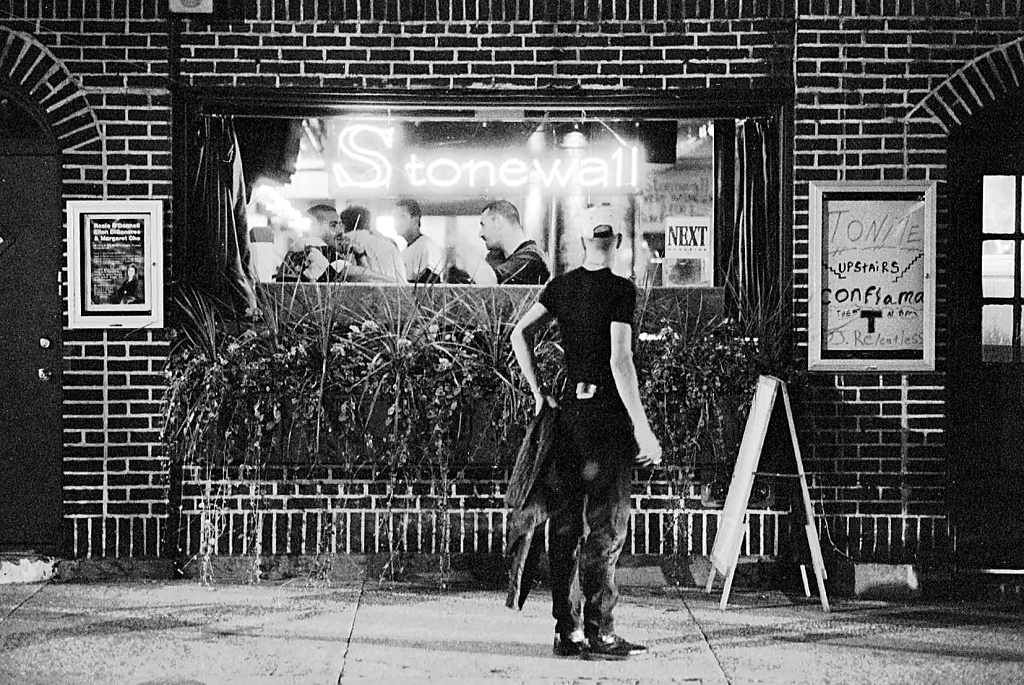

Then, on June 22, 1969, Judy Garland—an icon all but worshipped by many in the gay community—died of a drug overdose, leaving many in the community feeling lost and rudderless. When the next raid came, on the night of June 27, it was on the popular Stonewall Inn bar. Raids were not unusual in 1969; in fact, they were conducted regularly without much resistance. However, that night the street erupted into violent protest as the mourning crowds in the bar protested. The men had taken all they could; now, exacerbated by the feeling of hopelessness engendered by Garland's death, they fought back.
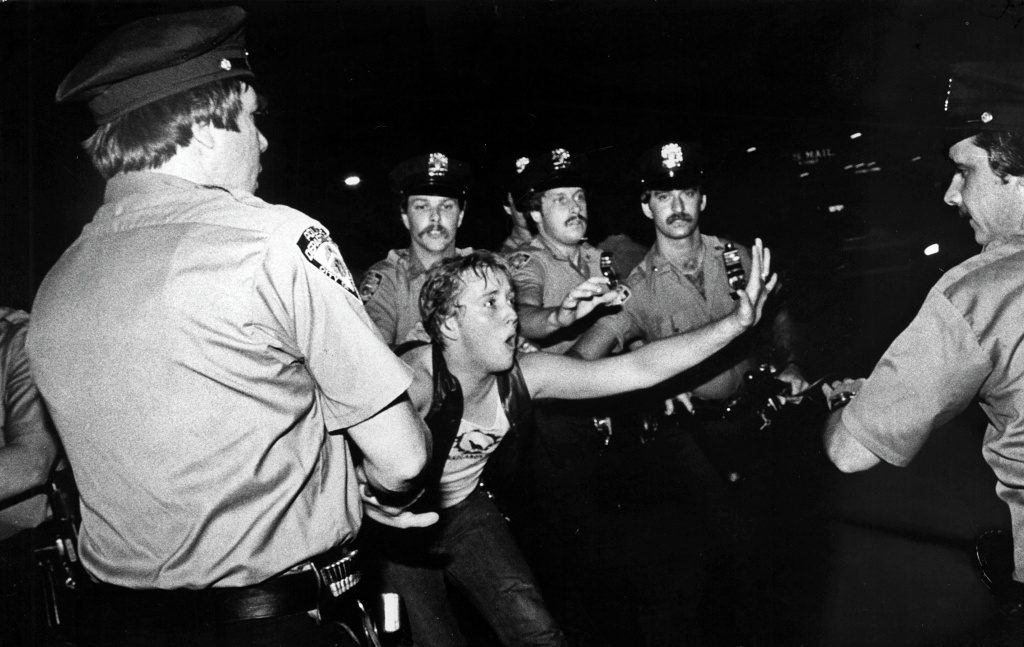
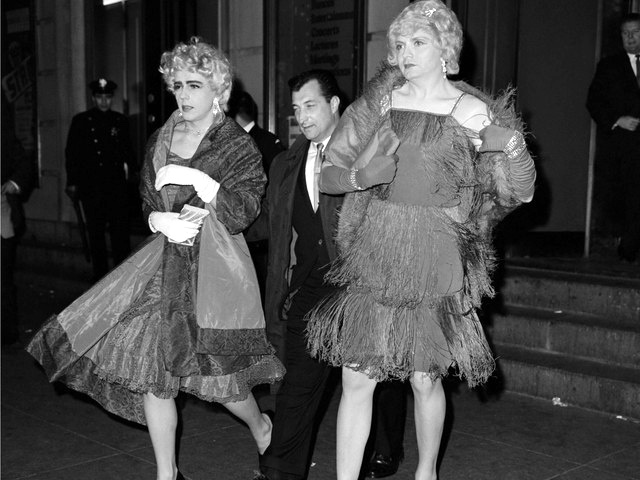
After the police had loaded patrons into a paddy wagon, onlookers began to shout insults at the police—and then suddenly exploded, hurling bottles at the officers, using an uprooted parking meter as a battering ram, blockading some of the police inside the bar, and then torching it. Reinforcements rescued the police officers, but the rioting continued for three more nights, with street people and queens in partial drag—long habituated to defiance, and with no privileges left to lose—in the vanguard.
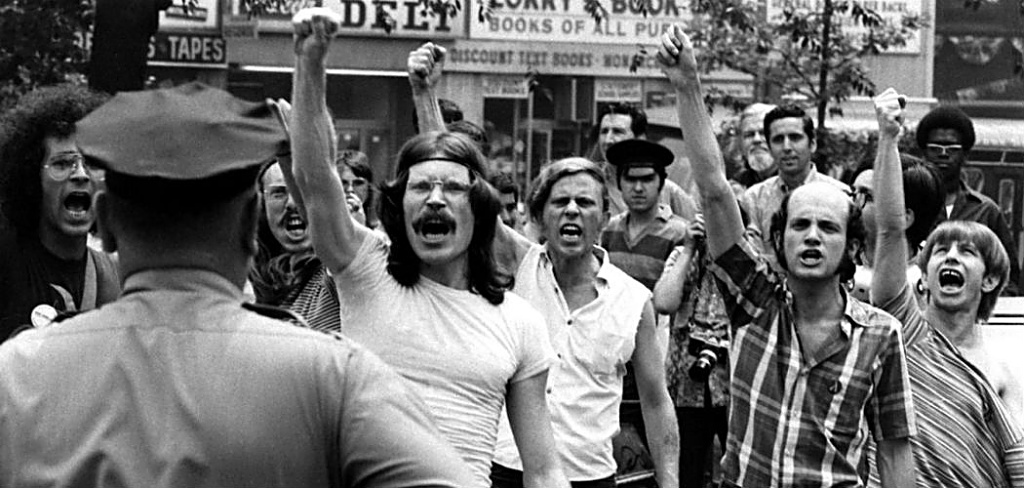
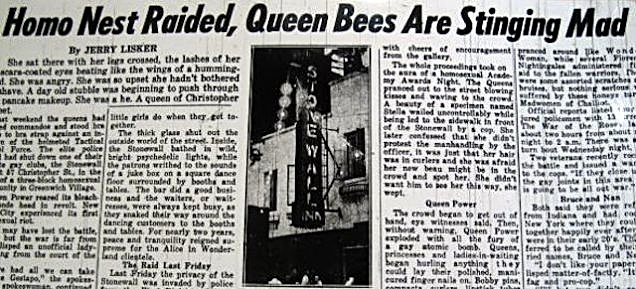
The New York Daily News headline read, "Homo Nest Raided, Queen Bees Stinging Mad". The Times, as always, was more reserved but reported that police had been summoned for the third time in less than a week, to quell a hostile crowd of nearly five hundred protesters chanting gay pride slogans and marching down Christopher Street. According to one eyewitness, the police, armed with nightsticks, seemed bent on massive retaliation: "At one point, Seventh Avenue…looked like a battlefield in Vietnam. Young people, many of them queens, were lying on the sidewalk, bleeding from the head, face, mouth, and even the eyes. Others were nursing bruised and often bleeding arms, legs, backs and necks."
The backlash and several nights of protest that followed have come to be known as the Stonewall Riots.
Prior to that summer there was little public expression of the lives and experiences of gays and lesbians. The Stonewall Riots marked the beginning of the gay liberation movement that has transformed the oppression of gays and lesbians into calls for pride and action. In the past twenty-five years we have all been witness to an astonishing flowering of gay culture that has changed this country and beyond, forever.

Reports of the Stonewall Riots don't usually put it in the perspective of having been sparked by Garland's death. But, more and more, historians are putting the two events together. Even without the loss of their icon, however, it was only a matter of time before the oppressed arose and attacked the oppressors. And it is in honor of the Stonewall Riots that Gay Pride parades are usually held in June, although here in Phoenix we celebrate in April because in June it's just too hot to march.
In June of 1969, I had just graduated from high school and was working as a lifeguard at St. Augustine's Ponce de Leon Hotel. Although I was attracted to men, I thought it was a shameful and embarrassing personal quirk which I struggled to overcome. I honestly thought I was the only man in the world with this flaw. It wasn't until after I was married and had become a father that I began to discover that I wasn't sick at all—merely the possessor of a normal difference, like being left-handed (a condition that was, at one time, also condemned as sinful; our word "sinister" is Latin for "left-handed").
It is thanks to those heroes in Greenwich Village who decided on that June night in 1969, that they had had enough, that today, gay kids can learn about themselves and their sexuality before the oppression of the religious extremists can inflict upon them decades of low self-esteem and high suicide rates.
Every time an oppressed group defies its chains, we are all made just that much more free.





